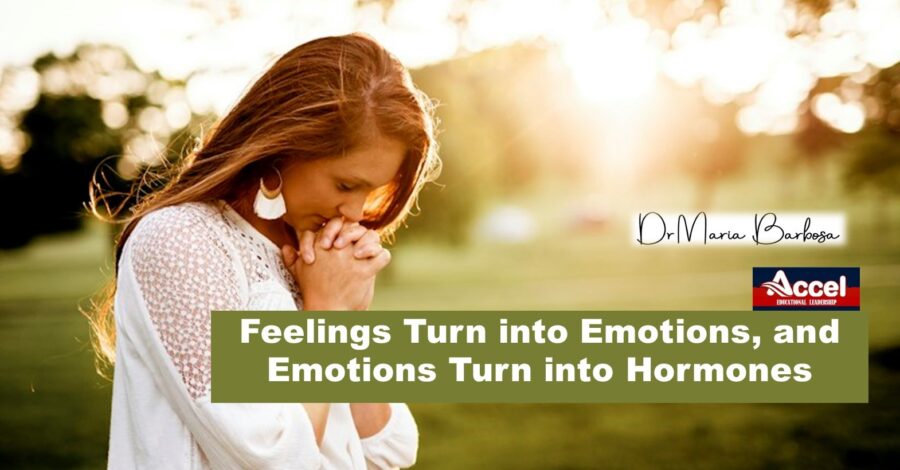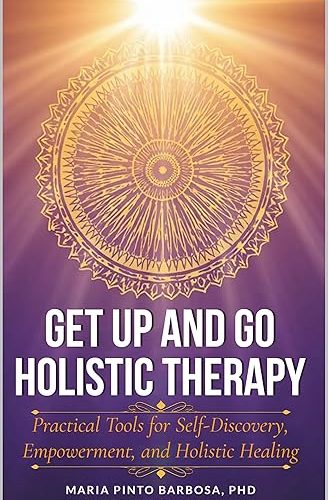Feelings Turn into Emotions, and Emotions Turn into Hormones
The Biology and Physiology Transformation
In the complex of human biology and physiology, the interplay between feelings, emotions, and hormones is a fascinating journey that shapes our overall well-being. Understanding how the cortex, adrenaline, and stress hormones function can provide profound insights into the impact of our emotional experiences on our health.
While feelings and emotions both play integral roles in shaping our subjective experience, the key lies in their duration, intensity, and the nature of the stimuli that evoke them. Understanding these distinctions adds depth to our comprehension of the complex of human psychology and behavior.
Somatization: Somatization is a psychosomatic phenomenon were emotional or psychological distress manifests as physical symptoms. This means that emotional factors, such as stress, anxiety, or unresolved trauma, can contribute to or exacerbate physical health problems.
When someone experiences somatization, they may express emotional distress through bodily symptoms without an apparent physical cause. Common examples include headaches, stomachaches, muscle pain, and fatigue. These symptoms are not attributable to a direct physical injury or illness but are instead linked to underlying emotional or psychological issues.
The mind and body are intricately connected, and stress or emotional turmoil can impact the nervous system, immune system, and other physiological processes. Somatization highlights the importance of considering both psychological and physical factors in healthcare, as addressing emotional well-being can be crucial for overall health. It’s important to note that somatization doesn’t imply that the symptoms are imaginary or not genuine; rather, they stem from psychological distress and can significantly affect a person’s quality of life.
Feelings: The Subtle Nudges of Sensation: Feelings encompass the subtle, nuanced responses to stimuli, situations, or experiences. They are often considered the conscious awareness of sensory input, providing individuals with a nuanced understanding of their internal state. Unlike emotions, which are more transient, feelings have a more prolonged nature, lingering as a subtle backdrop to our daily lives.
For example, the feeling of warmth on a sunny day or the gentle touch of a loved one can evoke a sense of comfort and contentment. These sensations contribute to feelings that color our perception of the world.
Emotions: The Ephemeral Waves of Experience: In contrast, emotions are the more intense and brief responses to specific stimuli. They are often considered the immediate and automatic reactions that arise in response to external or internal triggers. Emotions can be fleeting, evolving rapidly based on the context or situation at hand.
Examples of emotions include joy, anger, fear, sadness, and surprise. These emotional responses serve as adaptive mechanisms, preparing individuals to navigate and respond to various challenges or opportunities in their environment. Unlike feelings, emotions are typically more intense and have a shorter duration.
Key Differences
- Duration: Feelings tend to be more enduring, forming a consistent backdrop to our experiences, while emotions are transient and can fluctuate rapidly.
- Conscious Awareness: Feelings are often more consciously perceived and can be articulated with greater precision, whereas emotions may be more instinctive and immediate.
- Intensity: Emotions are characterized by their heightened intensity, eliciting strong physiological and behavioral responses, whereas feelings are more subdued and subtle.
- Response to Stimuli: Feelings often arise from a broader range of stimuli, including sensory input, memories, or thoughts. Emotions, on the other hand, are more closely tied to specific triggers.
The Unconscious Memory Repository: Every moment, every experience, whether positive or negative, is stored in the vast expanse of our unconscious memory. These memories, like silent echoes, contribute to the formation of our emotions. Between feelings and emotions sets the stage for a cascade of physiological responses, often beyond our conscious awareness.
Negative Feelings and the Stress Hormone Link: It is crucial to know the connection between negative feelings and the birth of stress hormones. Each negative emotion or pain stemming from trauma or life situations can transform into a stress hormone cell. This cellular transformation, if left unaddressed, has the potential to manifest in the body and escalate into diseases such as cancer and other illness.
The Biology of Cortisol Release: One of the key players in this intricate biological symphony is cortisol. Released by the adrenal glands in response to stress, cortisol serves as the body’s natural alarm system. While essential for survival, chronic elevation of cortisol levels can have detrimental effects on health, leading to a variety of issues ranging from immune suppression to metabolic imbalances.
Adrenaline: The Fight-or-Flight Hormone: In moments of heightened emotion, particularly stress, the body releases adrenaline. This hormone prepares the body to respond to perceived threats, initiating the famous “fight-or-flight” response. Understanding how adrenaline functions in response to emotions allows us to appreciate the intricate connection between our mental and physical states.
The Impact on Memory and Cognitive Function: The intertwining of emotions, hormones, and memory is a complex yet finely tuned system. Negative emotions, if not processed and released, can impair cognitive function and contribute to the persistence of stress-related memories. Addressing these emotional imprints is crucial for maintaining not only mental but also physical well-being.
Transformative Approaches to Emotional Health: To break the cycle of negative emotions turning into stress hormones, adopting transformative approaches to emotional health becomes imperative. Practices such as mindfulness, meditation, and therapy can play pivotal roles in promoting emotional well-being. These strategies empower individuals to navigate life’s challenges while minimizing the physiological toll on the body.
The Mind-Body Connection: Understanding the intricate relationship between emotions and the body is crucial in the pursuit of holistic healing. Trapped emotions can be like silent saboteurs, causing disruptions in our mental and physical well-being. By recognizing and addressing these imbalances, we can unlock the potential for profound healing.
Bypassing the Conscious Mind: With Get-Up-and-Go Holistic Therapy, we believe that the subconscious mind holds the key to understanding what our body needs to heal. To access this wealth of information, we must communicate directly with the subconscious. Through conscious, we can accurately locate traumas, negative emotions and energetic imbalances, leading the way for a more targeted and effective healing process.
Releasing Stuck Emotions: Once you’ve honed the skill of identifying and locating stuck emotions, the next step is releasing them. Our holistic approach empowers individuals to free themselves from the shackles of emotional baggage that may be holding them back. This process not only addresses symptoms but also seeks out and eliminates the root causes of emotional and physical issues.
Keep in mind: Theologically, emotions are often seen as integral to the human experience, but certain negative emotions may be considered disruptive to one’s spiritual journey. These emotions are thought to arise from a separation from God’s will or a lack of alignment with divine principles. As a result, they might be seen as hindering the closeness or intimacy one can have with God. In this view, cultivating positive emotions such as love, gratitude, and joy is often emphasized, as aligning more closely with a divine and harmonious existence. Practices like repentance, forgiveness, and seeking divine guidance are often encouraged to overcome and transcend negative emotions that may impede a deeper connection with God.
Conclusion: Understanding the significant influence of negative emotions on the body’s stress response highlights the crucial need to prioritize emotional well-being. Dr. Maria Barbosa offers a holistic therapeutic approach known as “Get-Up-and-Go,” proving to be an effective strategy for overcoming emotional distress and achieving inner peace. Through a deep comprehension of the mind-body connection, circumventing the conscious mind, and engaging in holistic techniques, individuals can liberate repressed emotions, leading the path for transformative healing of clients’ negative emotional states. This methodology revolves around tackling the root causes of distress, aiming for enduring well-being. Dr. Barbosa provides services to client in Portuguese, English and Spanish.
Maria Pinto Barbosa PhD #DrBarbosa
Certified as School Board of Education / PHD-Doctor of Philosophy in Cristian Clinical Counseling
ACCEL-Holistic Life Coach / Founder-Director of ACCEL Educational Leadership
Specialized on Temperaments – Personalities
Pastor Christian Minister Clergy / Bachelor of Theology in Pastoral leadership and Certified EETAD Theolog
Discover more from Dr Maria Barbosa
Subscribe to get the latest posts sent to your email.






